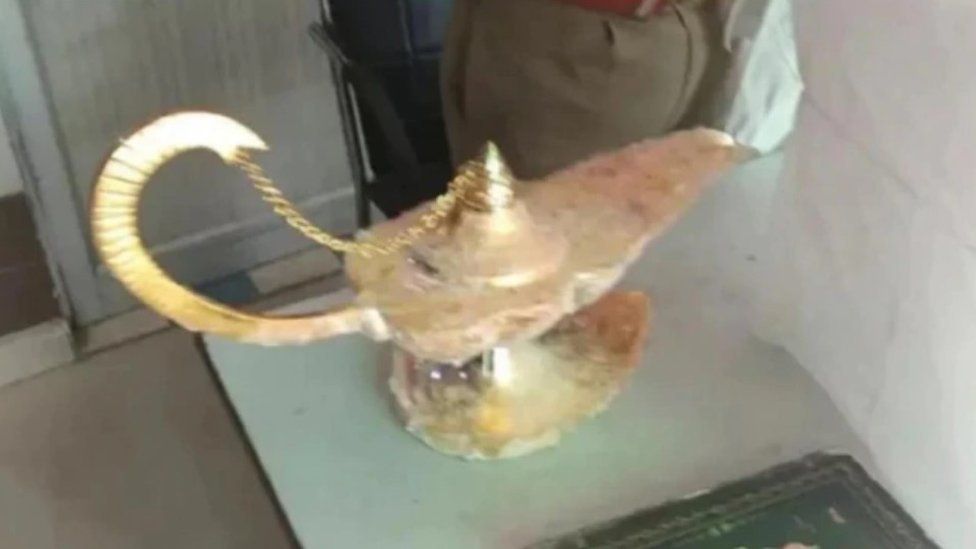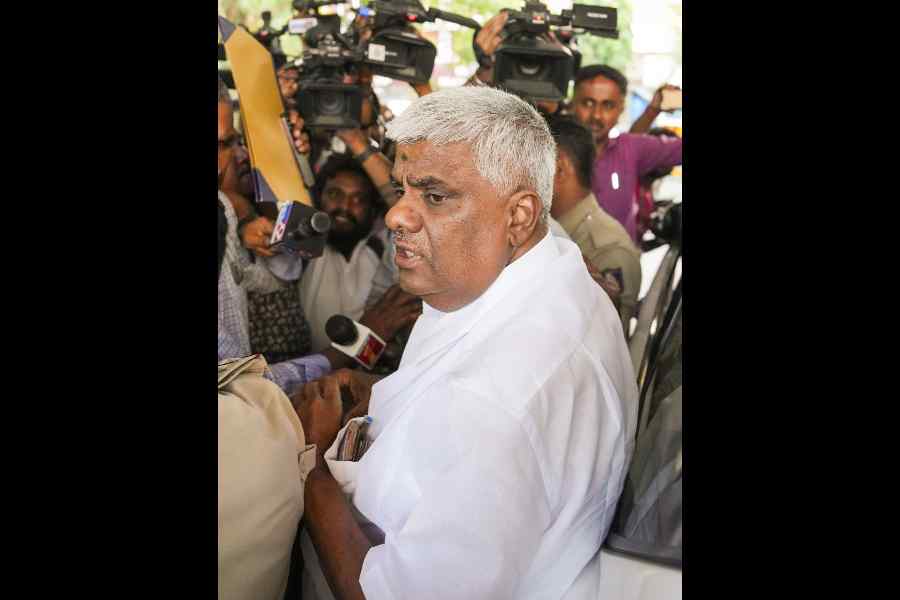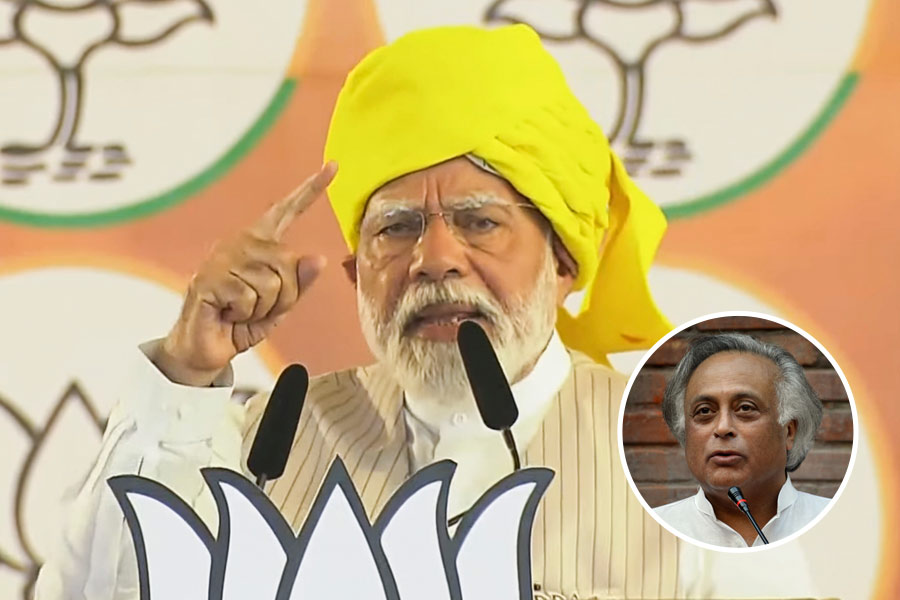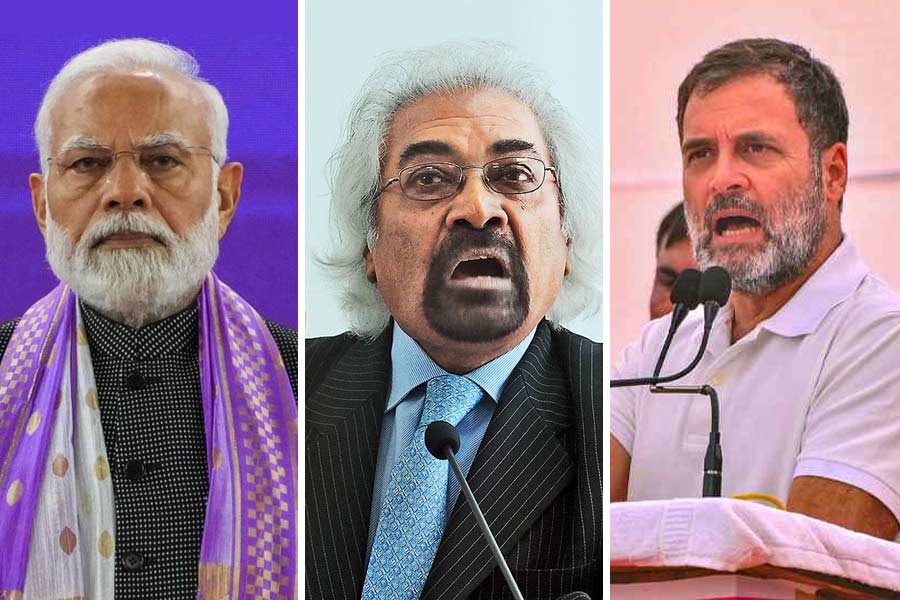Every event is open to more than one reading, as is the adventure of the doctor and the lamp. At the most prosaic level, this is the story of an audacious con that missed success by a hair’s breadth. A doctor in Meerut, Uttar Pradesh, just back from the United Kingdom, bought a lamp off two men who told him it was Aladdin’s lamp complete with the djinn who would give him everything he wanted. The doctor may have remembered Aladdin’s golden palace, limitless riches and marriage to a princess that were the high points of the popular version of the story. The two men, whom the doctor met while treating a woman supposedly related to one of them, persuaded him to meet a ‘priest’ with unusual powers, and reportedly also made the genie appear. From various reports, it seems that the doctor paid about Rs 70 lakh — a ‘discounted price’ for an object the men claimed was worth Rs 2.5 crore — and was told that using the lamp before two years had passed would bring misfortune to his family. That was a neat touch.
The genie failed to appear. The doctor reported the incident to the police and two men were caught, although, reportedly, a woman accomplice is on the run. The group has allegedly been carrying out similar lucrative tricks for some time. But they are far less interesting than their nemesis, the doctor who bought a lamp made of steel — or so the police said — and accepted as a genie a man dressed up as one — the doctor himself said this. The mundane story of cheating takes on a more colourful guise when read as a fable. It demonstrates that an anti-scientific spirit is overtaking the country: even a doctor can accept the wildly irrational if it promises to fulfil his heart’s desires. Therein lies the nub. The irrational is allied with desire, with the greed for a prosperity that can only be dreamt of. Ironically, that desire is activated by the conmen’s greed. But the greed, in other situations, need not be for money alone. Unlimited power over people (immeasurable wealth is a corollary), suppression of difference or dissent, perfect compliance of all — it can be for anything. It is enough to stimulate illusions of prosperity and domination in the prey with lies: everyone will buy steel lamps at the price of their souls and conjure up the genie from within their minds.
This sinister reading is a bit unfair to the story of the doctor and the lamp though. Its potential for entertainment cannot be denied; it almost matches some of the escapades in One Thousand and One Arabian Nights. So maybe the event validates the charm and power of storytelling, too, reviving old tales in new forms in everyday life — however scientific the era — like the irrepressible genie in a bottle.










